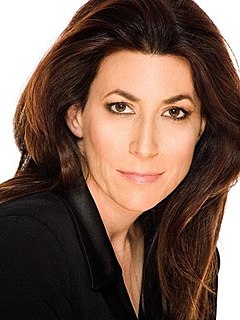A Quote by Mark Shields
Gone is any mention of American exceptionalism. I happen to believe that twice, three times in the 20th century, the United States saved Western democracy, both World War - both World Wars and the Cold War.
Related Quotes
In the middle of the nineteenth century, the United States embarked on a new relationship with death, entering into a civil war that proved bloodier than any other conflict in American history, a war that would presage the slaughter of World War I's Western Front and the global carnage of the twentieth century.
The World War I, I'm a child of World War I. And I really know about the children of war. Because both my parents were both badly damaged by the war. My father, physically, and both mentally and emotionally. So, I know exactly what it's like to be brought up in an atmosphere of a continual harping on the war.
The Philippines and the U.S. have had a strong relationship with each other for a very long time now. We have a shared history. We have shared values, democracy, freedom, and we have been in all the wars together in modern history, the World War, Second World War, Cold War, Vietnam, Korea, now the war on terrorism.
I believe the number is 70% of the world's refugees since World War II have been taken in by the United States. Every year, year in, year out, the United States admits more legal immigrants than the rest of the world combined. The United States has granted amnesty before to three million illegals and appears prepared to do it again.
To go back to a moment of Western civilization remote enough in time so that we should be able to look at it dispassionately, ask what happened during World War I. What was the typical behavior of respected intellectuals in Germany, England, the United States? What happened to those who publicly questioned the nobility of the war effort, on both sides? I do not think the answers are untypical.
Because the US has control of the sea. Because the US has built up its wealth. Because the US is the only country in the world really not to have a war fought on its territory since the time of the Civil War ... Therefore we can afford mistakes that would kill other countries. And therefore we can take risks that they can't ... the core answer to why the United States is like this is we didn't fight World War I and World War II and the Cold War here.
The casualties in the Civil War amount to more than all other wars - all other American wars combined. More people died in that war than World War II, World War I, Vietnam, etc. And that was a war for white supremacy. It was a war to erect a state in which the basis of it was the enslavement of black people.
What would be the difference if we retreated and let the French and Germans make decisions for the world? We tried that twice in the last century. Isolationsim, refusing to accept our role in the world, and delaying our response to evildoers ultimately cost fifty-three million lives in World War 2 alone. The preemption policy of the Bush administration, taking the war to the enemy and exporting democracy and freedom, has liberated fifty million.






























